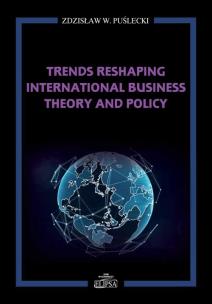- Regulamin
- Koszty dostawy
- Kontakt
- Dziś w ofercie 234 964 produkty
KSIĄŻKI
- Albumy
- Beletrystyka
- Biografie
- Dla dzieci i młodzieży
- Edukacja
- Ekonomia i biznes
- Ezoteryka
- Historia
- Informatyka
- Kalendarze
- Komiksy
- Kryminał i sensacja
- Kultura i sztuka
- Literatura faktu
- Literatura kobieca
- Literatura piękna
- Medycyna
- Nauka języków obcych
- Nauki humanistyczne
- Nauki przyrodnicze
- Nauki ścisłe
- Podręczniki
- Poradniki
- Prawo i administracja
- Przewodniki i podróże
- Psychologia
- Religia
- Sport
- Technika
- Zdrowie i uroda
ZABAWKI
- Artykuły dla niemowląt
- Bączki
- Bujaki i skoczki
- Ciągnij / pchaj
- Dla niemowlaka
- Grzechotki i gryzaki
- Karuzele i pozytywki
- Maty i centra zabaw
- Projektory i lampki
- Sortery i piramidki
- Zabawki
- Edukacyjne i kreatywne
- Figurki
- Klocki
- Lalki
- Pojazdy
- Pluszaki i maskotki
- Sport i rekreacja
- Zabawa w dom
- Zabawki drewniane
- Puzzle
- Do 200 elementów
- 201-500 elementów
- 501-1000 elementów
- Ponad 1000 elementów
- Puzzle 3D
ART. PAP
- Artykuły biurowe
- Artykuły piśmiennicze
- Bloczki i kartki samoprzylepne
- Dziurkacze
- Kalkulatory
- Nożyczki i nożyki
- Skoroszyty
- Teczki
- Wizytowniki
- Zszywacze
- Artykuły szkolne
- Akcesoria szkolne
- Modelowanie
- Notatniki i zeszyty
- Piórniki
- Plecaki i torby
- Pojemniki na śniadanie
- Pomoce naukowe
- Przybory matematyczne
- Przybory rysunkowe
- Upominki i gadżety
- Akcesoria do książek
- Artykuły balowe
- Breloki i zawieszki
- Drobiazgi, różności
- Kubki
- Oferta Świąteczna
- Papeteria, kartki i naklejki
- Skarpetki Many Mornings
- Upominki
GRY
MULTIMEDIA
- Audiobooki
- Beletrystyka
- Biografie i wspomnienia
- Dla dzieci i młodzieży
- Fantastyka
- Filozofia i religia
- Historia
- Literatura faktu i reportaż
- Poradniki
- Sensacja i kryminał
- Filmy DVD/BD
- Animowane
- Biograficzne
- Fantasy
- Horrory
- Komedie
- Romanse
- Science Fiction
- Sensacyjne / kino akcji
- Thrillery
- Muzyka CD
- Alternatywna
- Blues
- Dla dzieci
- Jazz
- Klasyczna
- Piosenka aktorska i poetycka
- Pop
- Rock
- Świąteczna i kolędy
- Akcesoria GSM
- Głośniki
- Kable i adaptery
- Klawiatury
- Myszy
- Słuchawki
PROMOCJE
ZDROWIE
LEGO

Trends Reshaping International Business Theory and Policy
Autor: Zdzisław W. Puślecki
Wydawca:
Elipsa Dom Wydawniczy
ISBN:
9788380172616
EAN:
9788380172616
oprawa:
Twarda
format:
17.0x25.0cm
język:
angielski
liczba stron:
272
rok wydania:
2019
(0) Sprawdź recenzje
Opis produktu
Zasady bezpieczeństwa
In this research, the Author focuses on the analysis trends reshaping international business theory and policy. According to the foreign trade policy theory, further trade liberalisation and improved framework policies would increase trade and promote growth. It must be emphasised that openness to trade is associated with higher incomes and growth and there is the necessity for the new approaches towards trade cooperation within the forces that are currently reshaping international business. The introduction of the new models of foreign trade policy and trade interests indicates the importance and innovativeness of the research. First of all, it must be underlined that the specificity factor is crucial in the new theoretical terms in demand for trade policy. The low specificity of factors means that factor returns are equalised throughout a region’s economy.
On the other hand, some factors are stuck in their present uses; therefore, factor returns are not equalised throughout a region’s economy but are industry specific. It is important to underline that a few companies are responsible for a major share of the world trade and the rise of global supply chains. On the one hand, these companies should support regulatory harmonisation across different Preferential Trade Agreements (PTAs) in order to lower trade costs. Differently, they might also resist harmonisation – and encourage specific non-tariff measures – in order to prevent new competitors from entering markets. The previous statement partly explains the persistence of regulatory divergence, and it also suggests that the political economy of regulatory convergence may be more critical and more complicated than it is sometimes suggested, especially in the conditions of the rise of the global supply chains.
CENA:
33,51
zł
Cena detaliczna:
42,00 zł
20%
rabatu
Najniższa cena z ostatnich 30 dni: 33,60 zł
Produkt niedostępny
Uwaga!!!
Ten produkt jest zapowiedzią. Realizacja Twojego zamówienia ulegnie przez to wydłużeniu do czasu premiery tej pozycji. Czy chcesz dodać ten produkt do koszyka?


Wybierz wariant produktu
